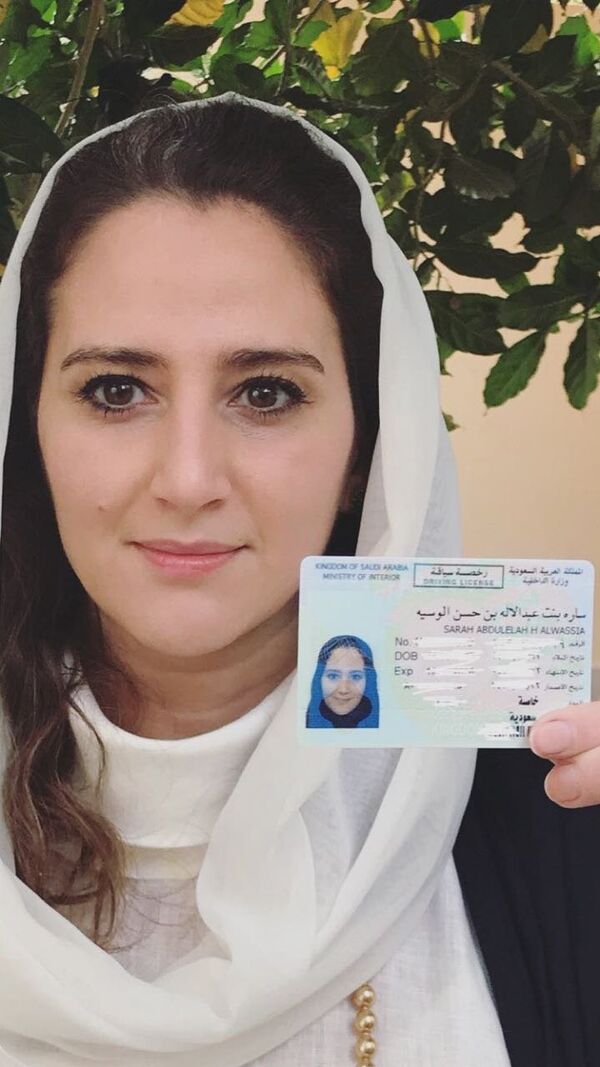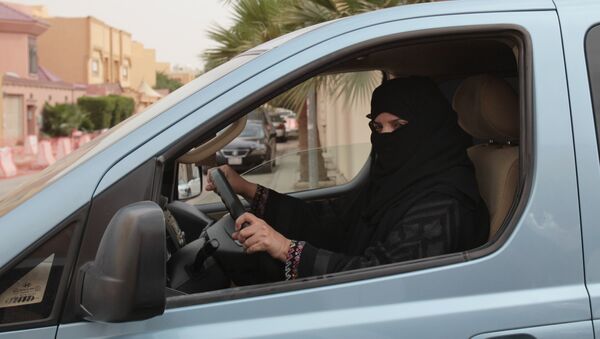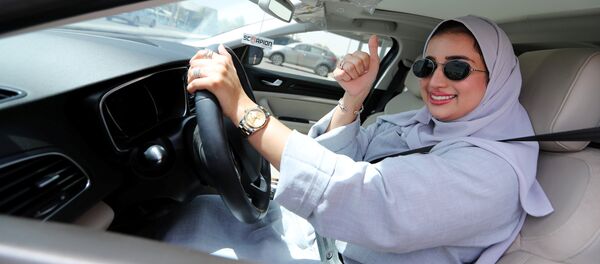As economist Saad al Dusri told Sputnik, "these four months during which Saudi women have been driving have contributed to the economic growth of the kingdom."
"First of all, more women are now working because they no longer depend on transportation. Then, the money that a Saudi family used to pay drivers can now be used for other things. And finally, the money that foreign drivers have been sending to their home countries is now in the kingdom," the expert said.
READ MORE: Women Can Now Drive Legally in Saudi Arabia
The economist went on to say that in the first quarter of 2018, the number of drivers in the kingdom had decreased by 28,000 people, and now there are 1,357,228 drivers in the country.
"In absolute terms, over the past six months, about 327 million Saudi riyals ($86.5 million) were not earned by the country's drivers. Now, car dealers, workshops, insurance companies, and banks receive additional money. The number of drivers, especially those who came to work for a family, will continue to decline. With the development of the Internet and smartphones, Saudis prefer using taxi apps like Uber," Saad al Dusri said.
According to Fallah al Ahmari, chief sales officer at Al Bayan Motors, car sales have increased. "We are seeing a new 'women's car' market. Ladies choose a car that meets their criteria — it consumes less fuel, guarantees safety and is beautiful. We take into account the wishes of our clients and help them find an ideal car," he told Sputnik.
A Female Driver: Men Welcomed Us
"At first, I was worried a lot about how men would behave toward a female driver; but actually I shouldn't have as male drivers have treated us quite well. They support us and help if necessary; they are really polite," Sarah said. In particular, the woman recalled the work of the traffic police. "Inspectors help us a lot and encourage us. If there's an accident on the road, they can quickly solve the problem."

READ MORE: Scholar Explains What Might Come Next as Saudi Arabia Repeals Women Driving Ban
Saudi Arabian Resident: Driver Has Been Costly
Saad Al Shamrani, a resident of the kingdom, told Sputnik that he used to pay $530 a month for his driver. "He also had his meals with us and he had a room in our house, with a shower, toilet, and access to the street. Now that he's gone, our life has become more comfortable," he said.
Views and opinions expressed in the article are those of the speakers and do not necessarily reflect those of Sputnik


